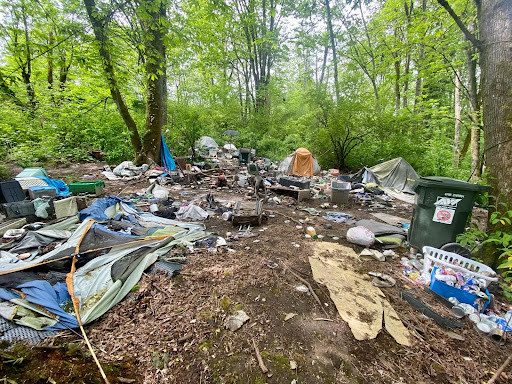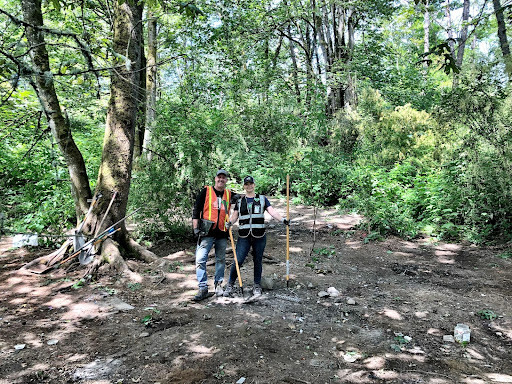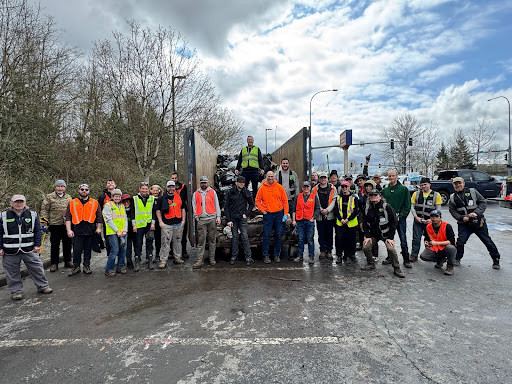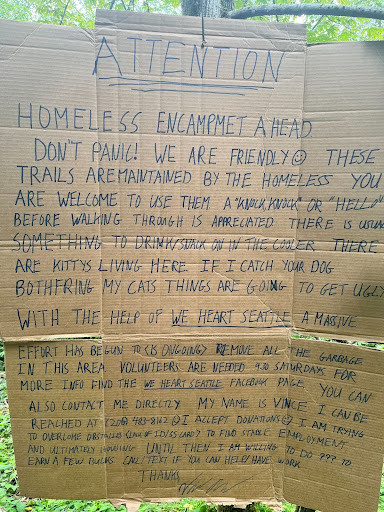
As We Heart Seattle enters its fifth year, its mission remains both simple and revolutionary: to empower the community, both the housed and the unhoused, by organizing movements to clean up trash across the city. For founder Andrea Suarez, litter is more than waste. It's a gateway to community transformation, civic engagement, and ultimately, the reclamation of human dignity.
Suarez's initiative has cleared nearly two million pounds of garbage from Seattle's parks, sidewalks, and greenbelts, a visible, calculated impact. But it's what lies beneath the trash, both literally and metaphorically, that defines We Heart Seattle's true power. "The trash is the surface," Suarez says. "What lies beneath are people living with trauma, drug addiction, and broken relationships. When we clean up the environment, we start to heal the people, too."
We Heart Seattle is not a traditional nonprofit. It doesn't follow the typical scripts of large-scale social services, nor does it rely on top-down institutional interventions. Instead, it follows a simple but profound mantra: empowerment, not enablement. Suarez emphasizes: "We believe in offering a hand up, not a handout. And it just so happens that clearing trash is the perfect vehicle for this."

For Suarez, community cleanup is about civic engagement. "Volunteering is how you vote for the backyard you want to live in," she explains. "If you don't want to see garbage, graffiti, and suffering, you have to get more hands-on. Learn the resources, know where the shelters and detox stations are, and simply get started by cleaning up the trash."
This philosophy has led volunteers into the hidden corners of Seattle: under bridges, behind overpasses, and deep into wooded ravines. There, among the piles, they find not just discarded belongings but the truth about the city's homelessness and addiction crises, truths that remain hidden by headlines and political spin.

One of Suarez's guiding beliefs is that "a clean city is a safe city." The act of cleaning creates a shared goal between everyday citizens and people living on the streets. By physically engaging with the environment, volunteers dismantle the psychological and societal barriers that separate housed and unhoused communities.
"There's a power dynamic shift that happens," Suarez says. "When you hand someone a trash bag, you are not rescuing them, you're inviting them to be part of something. That kind of engagement builds trust, which is essential, especially for people who have been burned by the system."
That trust can be transformative, and Vince Rowland's engagement with We Heart Seattle is a perfect example of how compassion can change a person's life. He was living on the street, overwhelmed by garbage and despair. "He told us he felt completely stuck," Suarez recalls. "But once we cleaned his camp, he saw a way out. Removing the garbage was the catalyst. He started seeking mental health services and addiction recovery. That's the power of showing up with compassion and purpose." Vince's story is one example of hundreds of people who have found their way out through this community-led model.
We Heart Seattle is as much a civic movement as it is a service organization. It doesn't focus on political ideologies but instead on human connection and shared responsibility. "It's about untreated trauma and what we can actually do right now," Suarez says.
This action-oriented philosophy is at the heart of Suarez's mission. She is not trying to build a national nonprofit empire. She's trying to spark a movement. "I'd rather have this message reach a million people than get a million dollars in funding," she says. "If one person reads this and decides to start a cleanup in their own city, that's a win."

Suarez describes the work of We Heart Seattle as an "excavation of truth." Each cleanup reveals more than trash, it uncovers the human stories buried beneath. And that process of discovery transforms both the volunteers and the people they help. "We have seen people detox, reconnect with family, and re-enter society because someone took the time to clean and listen," Suarez says.
And as We Heart Seattle continues into its fifth year, its message remains clear: a saved life is a saved city. When an individual helps someone exit homelessness, when they clear away the chaos, they restore safety, not just for them, but for every citizen. Because at the end of the day, as Suarez says, "This is one thing we can all gather around as a community."







